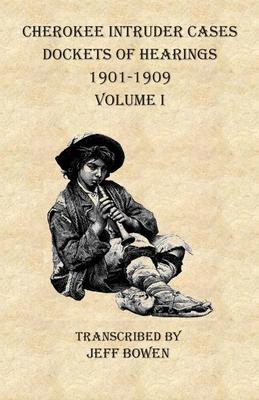The intruders' cases found in this book are intriguing on a number of counts. The cases refer to hundreds of people because of the assortment of individuals referenced on behalf of allottees and intruders, as well as lawyers. In some cases researchers may have to make their own determination as to whether an intruder qualified as a Cherokee citizen. While an ancient family legend may assert that one's ancestors were Indians, the determinations in Stevens left much up in the air. On the one hand, the intruder was considered to be a land owner, based upon the Court's determination as to how he had funded his purchase as an "individual Indian." On the other hand, the intruder does not appear on a Cherokee roll even though his land was protected under papers issued by an Indian Agent. In some cases the Cherokee Nation was able to auction off the intruder's land based on the outcome, "Action, No return of service, no answer filed"; under "Remarks, contest pending, Case dismissed for want of prosecution, dismissed," for a fraction of its true value to the intruder. There are over 1,300 cases within this 2-book series.

Book
Cherokee Intruder Cases Dockets of Hearings 1901-1901 Volume I
(Write a Review)
Paperback
$39.00
The intruders' cases found in this book are intriguing on a number of counts. The cases refer to hundreds of people because of the assortment of individuals referenced on behalf of allottees and intruders, as well as lawyers. In some cases researchers may have to make their own determination as to whether an intruder qualified as a Cherokee citizen. While an ancient family legend may assert that one's ancestors were Indians, the determinations in Stevens left much up in the air. On the one hand, the intruder was considered to be a land owner, based upon the Court's determination as to how he had funded his purchase as an "individual Indian." On the other hand, the intruder does not appear on a Cherokee roll even though his land was protected under papers issued by an Indian Agent. In some cases the Cherokee Nation was able to auction off the intruder's land based on the outcome, "Action, No return of service, no answer filed"; under "Remarks, contest pending, Case dismissed for want of prosecution, dismissed," for a fraction of its true value to the intruder. There are over 1,300 cases within this 2-book series.
The intruders' cases found in this book are intriguing on a number of counts. The cases refer to hundreds of people because of the assortment of individuals referenced on behalf of allottees and intruders, as well as lawyers. In some cases researchers may have to make their own determination as to whether an intruder qualified as a Cherokee citizen. While an ancient family legend may assert that one's ancestors were Indians, the determinations in Stevens left much up in the air. On the one hand, the intruder was considered to be a land owner, based upon the Court's determination as to how he had funded his purchase as an "individual Indian." On the other hand, the intruder does not appear on a Cherokee roll even though his land was protected under papers issued by an Indian Agent. In some cases the Cherokee Nation was able to auction off the intruder's land based on the outcome, "Action, No return of service, no answer filed"; under "Remarks, contest pending, Case dismissed for want of prosecution, dismissed," for a fraction of its true value to the intruder. There are over 1,300 cases within this 2-book series.
Paperback
$39.00